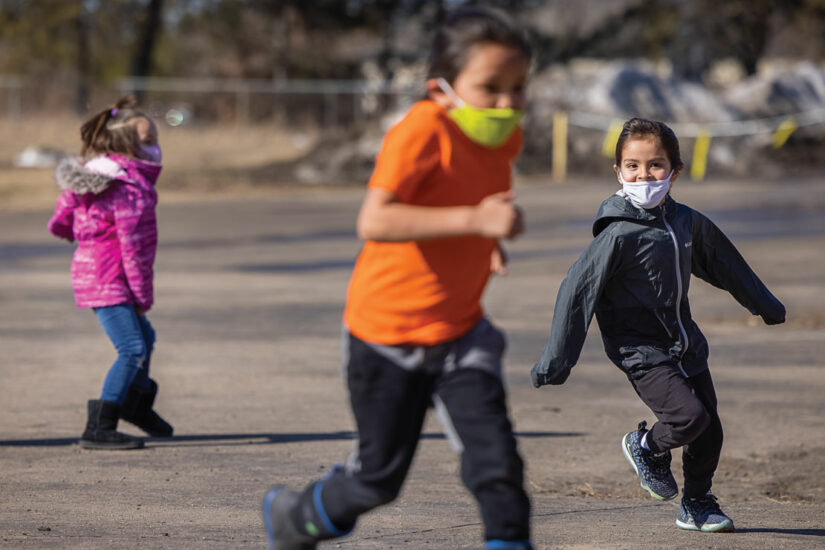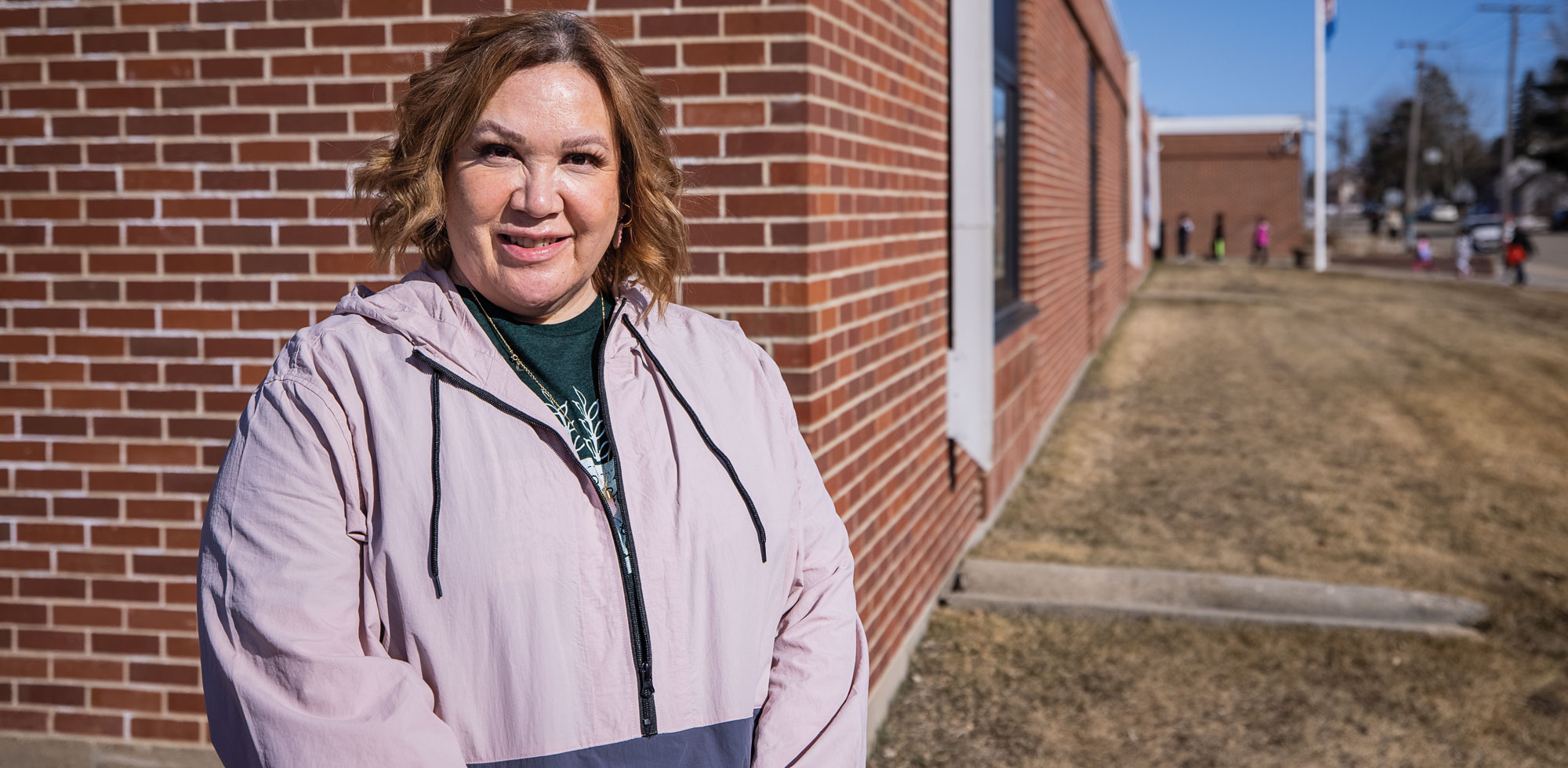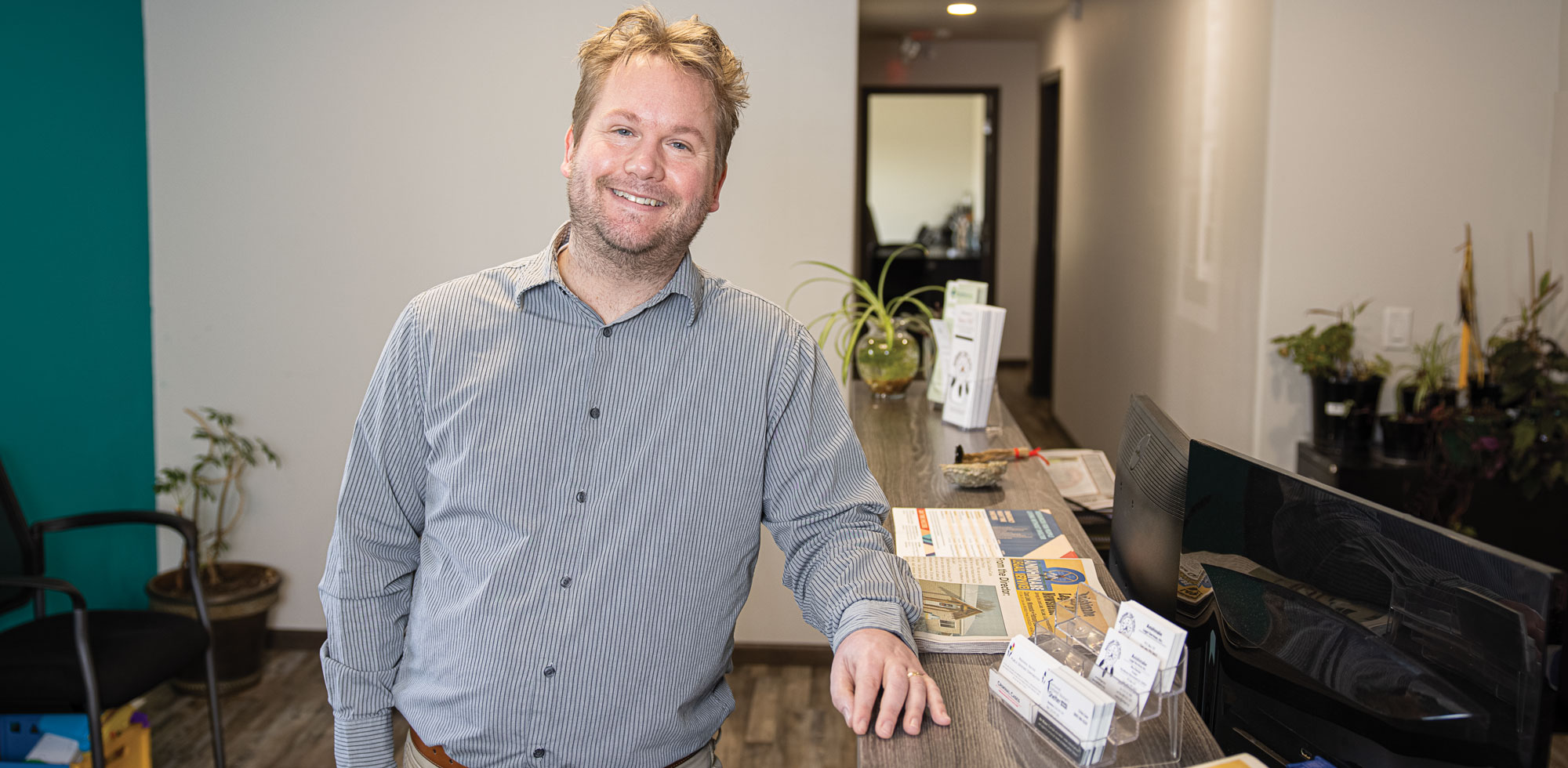
Doing More With More
The Initiative Foundation’s Nonprofit Academy teaches organizations how to survive and even thrive, especially when they’re most needed.
By Gene Rebeck | Photography by John Linn
The Boys and Girls Club of the Leech Lake Area, located in Cass Lake, provides outside-of-school programs and a safe environment for the children of the Leech Lake Band of Ojibwe. When COVID-19 hit and schools closed, the community required even more of the club’s help. But in a highly stressed economy, how would it find the needed funding?
In fact, 2020 turned out to be one of the Boys and Girls Club’s most successful fundraising years ever. By November, the nonprofit had received $150,000 from a state-level grant for distance learning that was used for computers, iPads, internet hot spots, and for information technology consulting to prep and set up the equipment. And during the summer, the organization received more than $50,000 in new funding to support weekly food delivery to kids and their families. It also received a $10,000 food access grant from Walmart.
While Rebecca Graves, the Boys and Girls Club’s executive director, credited that success to many people, “a lot of that is due to the partnership we had with the Initiative Foundation,” she said, and with the club’s participation in the Foundation’s Nonprofit Academy, formerly known as its Financial Resiliency program. Nonprofit Academy is a free program that provides training to a cohort of eight to 12 nonprofit organizations to help them improve their management skills, identify areas where their mission isn’t being fully served, and uncover new or additional sources of funding.
Participation in the Nonprofit Academy can involve up to a yearlong commitment where nonprofit leaders and their teams—including board members—are immersed in best practices for organizational health and sustainability. The program is incentivized with grant awards and features different learning tracks that focus on organizational development, fiscal fitness, developing donors and fundraising.
During a financially stressful time for nonprofits and those they serve, the lessons learned through the Nonprofit Academy are needed more than ever.
A SUPPORTIVE COHORT
Launched in 2013, the Nonprofit Academy was started to help nonprofits become more socially enterprising and less dependent on the ebb and flow of grants. At the time, many area nonprofits launched for-profit ventures—including thrift stores and pet-grooming services—where the earnings were used to support the nonprofit’s mission.
Over time, many nonprofit leaders realized they didn’t want to start a new business. They did, however, want to learn how to improve their nonprofit’s operations. So, the program has evolved to fit these changing needs, including training people in specific business practices, such as budget management, accounting, preparing and reading financial statements and marketing and communications.
“A nonprofit is a business that exists to fulfill a mission,” said Zach Tabatt, who oversees the Nonprofit Academy in his role as the Initiative Foundation’s program officer for nonprofit development. “These organizations need to follow the revenue and expense rules of business. If you don’t have money, you can’t pay your staff, and you can’t serve the community or achieve your goals.” The challenge is compounded by societal influences, he said, which push nonprofits to run so lean that even small economic disruptions can become major threats.
“In 2020, during the worst economic disruption in 100 years, every single organization held on for the whole program,” said Tabatt, who pivoted to virtual training when the pandemic hit. “I feel that our program provided a good backstop so COVID-19 didn’t derail our partner organizations. They had this cohort of peers they could lean on and a consistent meeting each month that allowed them to step back and not always be in the middle of the daily stresses and challenges.

TELLING STORIES
A key role of the Nonprofit Academy program is to boost organizational confidence so they can better tell their story to raise money and serve their communities. One member of last year’s cohort that put a sense of mission-focused storytelling to good use was Anishinabe Legal Services (ALS), a civil legal aid program based in Cass Lake. The nonprofit, which began as the Leech Lake Reservation Legal Services Project in 1967, serves the Leech Lake, White Earth and Red Lake Reservations as well as surrounding communities.
ALS depends largely on government funding, which varies from year to year. “Finding ways to leverage funding from foundations, businesses and individuals is really important for our program,” said Cody Nelson, executive director. “Civil legal aid in Minnesota and across the nation generally has to turn away around 50 percent of applications for services due solely to resource limitations.”
During their time with the Nonprofit Academy program, Nelson and his team learned about the business model canvas, which is a template for developing new business models or documenting existing practices. The awareness helped them refine the story they told to current and potential Anishinabe Legal Services funders. This technique also pushed ALS to identify ways in which its work benefits clients as well as the court system, social service agencies, area businesses—indeed, the entire community.
The lessons worked. ALS raised more than $250,000 from foundations, organizations and businesses from late 2019 and into 2020, an increase of approximately 30 percent over the prior year. The funding made it possible to hire additional staff, and it enabled the nonprofit to make the case for a new building to replace its rickety century-old structure. The legal services agency’s capital campaign raised more than $175,000 last year, which allowed ALS to build and move into new office space in January.
“To be able to expand during the pandemic was a fortunate thing,” said Nelson. “Particularly since the need for the program’s services has only intensified.”

MORE WITH MORE
Like ALS, the Boys and Girls Club of the Leech Lake Area learned from the Nonprofit Academy program how to better market itself to funders. And thanks to the strong fundraising that resulted, it was able to expand as the community’s needs grew in number and in urgency.
Pre-COVID-19, the Boys and Girls Club provided at least one meal and a snack for the school children who used its services. During the summer, it provided more meals, since many kids spent the whole day there.
Then the pandemic struck and the community’s main school district had to stop serving state government-mandated meals. What’s more, there was no other agency serving meals during the summer to those in need.
“Our program really pivoted,” Graves said. “We didn’t pivot from what we do, but we pivoted in how we did it. We saw needs that presented themselves within our community, and we grew into them.”
The Boys and Girls Club responded by providing child care for parents who weren’t working at home, and who couldn’t leave their children at school or preschool. It also increased the number of its meal offerings as a growing number of kids spent more time there. The club also had the funding to provide additional meals throughout the summer. When fall came, “we were even able to expand and serve more people,” Graves said. “And around the holidays, we offered assistance to families like food-only gift certificates so their needs would be met when kids weren’t in school.”
“Despite all of the uncertainties of 2020, the team at the Boys and Girls Club courageously increased their engagement and changed the way they do business to better serve unforeseen needs and aggressively seek out additional funding,” said Tabatt. “I think the Nonprofit Academy helped them maintain their stability and go above and beyond for their community, even during COVID.”
The program has helped many nonprofits maintain their financial equilibrium and fulfill their missions, particularly at a time when demand for their services has been greater than ever.